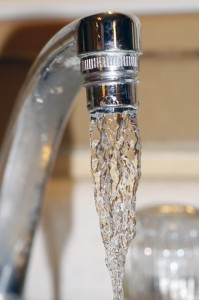Counties Seek Act 13 Funds For Groundwater Studies
-
Marie Cusick

Jenn Durfey/ via Flickr
Bradford and Lycoming counties are looking into applying for state grant money to study groundwater quality in private water wells.
Two of Pennsylvania’s most drilled on counties are looking to apply for a new state grant program to study groundwater quality.
Bradford and Lycoming Counties are interested in getting money from the state Department of Community and Economic Development’s Baseline Water Quality Data Program.
It’s a new grant program that was created under the state’s 2012 law regulating drilling, known as Act 13.
The law requires gas companies to pay an impact fee for each well they drill. It’s brought in more than $406 million over the past two years.
Some of the money stays with state agencies regulating drilling. Sixty percent of the remainder goes to counties impacted by drilling, while 40 percent goes into the Marcellus Legacy Fund– which gets spread out around the state for various environmental and infrastructure projects.
This is the inaugural year for the groundwater data grants. There are six available totaling $250,000 each. The money comes from the Marcellus Legacy Fund. Bradford County plans to announce its grant application tomorrow.
Democratic Bradford County Commissioner Mark Smith says the county plans to partner with the U.S. Geological Survey and three nearby health care providers: Geisinger, Guthrie, and Susquehanna Health.
“This is an effort to understand where we are now and where we’re headed over the long term,” says Smith. “In the scale of how long drilling is going to take place in Pennsylvania, we’re still very early on in the process.”
The Lycoming County Commissioners will announce whether they plan to apply at their meeting tomorrow morning.
Curtis Schreffler is the associate director for the U.S. Geological Survey’s Pennsylvania Water Science Center, which plans to conduct water sampling.
He says the studies will be an overall snapshot of groundwater quality based on testing from 70 private water wells in each county.
“We’re not just targeting areas where there are gas wells,” Schreffler says, “The initial one-year effort is really just coming up with a database on what we sampled for.”
The water sampling will look at a broad array of contaminants including metals, dissolved gases, volatile organic compounds, radium, and bacteria.
If the grants are approved later this fall, Schreffler says the study will begin in early 2014, and he hopes the effort will continue for another decade so researchers can see changes over time. He adds that officials in Wayne and Pike counties have also expressed interest in the program.
















